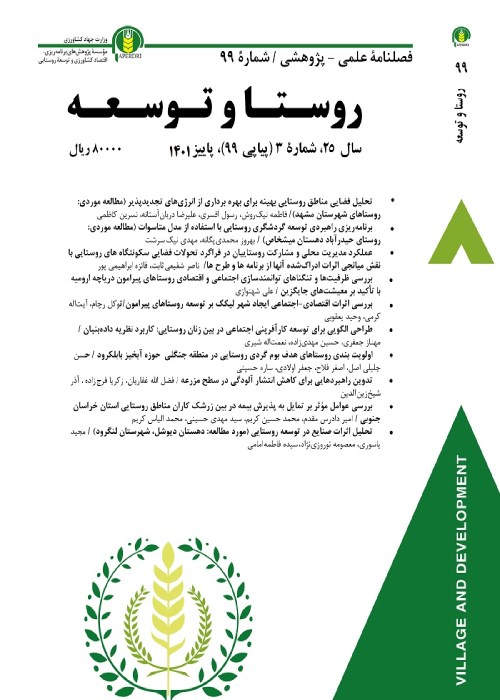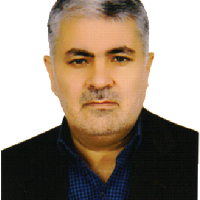Modeling the Relationships between Organizational Intelligent Components for the Development of Rural Production Cooperatives
The creation and development of small enterprises in rural areas will lead to the development and prosperity of the village economy. But in recent years, the cooperative sector has not been successful in production and services, and it seems that they are facing internal and external structural problems including weaknesses such as insufficient information, weak human resources and poor management, lack of financial resources and old technology, and issues such as acquiring knowledge and skills, better access to inputs and more effective marketing of products. These problems have made cooperative companies unable to be dynamic in their business environment and have not acted intelligently in this direction. Meanwhile, organizational intelligence is efficient and effective in the ability to solve problems and respond to the challenges of the external environment. Therefore, adaptability and organizational intelligence are essential for organizations. A company's intelligence creates intelligent activities and methods with market knowledge and environmental scanning which it uses as an adaptive tool to cope with its ever-changing environment. However, the village production cooperatives have not been able to achieve their desired goals in the competitive market due to not having an intelligent structure. Therefore, considering the acute conditions of rural production cooperatives in order to achieve the goals of sustainable development, this research was conducted with the aim of identifying and determining the dimensions and intelligent organizational components and modeling the mutual relationships for the development of rural production cooperatives.
The current research was conducted in two parts, qualitative and qualitative. In the qualitative part, the indicators, components and dimensions of the model were identified and extracted using grounded theory method and in the quantitative part, the relationships between the elements of the model were determined by the interpretive-structural modeling method. The research community of experts included the managers of Ministry of Cooperatives, Labor and Social Welfare, and Ministry of Agriculture–Jahad, who were selected in a non-probabilistic, purposeful way and with the snowball technique in the number of 12 people until reaching theoretical saturation. The method of field data collection is through semi-in-depth interview and researcher questionnaire. The content validity of the indicators was analyzed by the Lawsheh Coefficient Method, and we used the fuzzy Delphi method to screen the components.
Organizational intelligent components for development of rural production cooperatives as follows: intelligence enablers (human intelligence, managerial intelligence, technological intelligence, strategic intelligence, technical intelligence), organizational intelligence capabilities (organizational learning, information and data, customer relationship management, intelligent thinking, process), Intelligent development contexts (infrastructure, cooperation and communication, financial, structure), intelligent governance (government support and incentives, organs and institutions, rules and regulations, competition), intelligence strategy (competition development, market development), intelligence performance (sustainable competitive advantage, productivity improvement, service improvement, rural development). The results of the quantitative part and interpretative-structural modeling showed that the components in the structural model are located at 12 levels, so that the components of "laws", " government support and incentives", "competition", and "structure" is the most effective and basic components and "competition development" and "market development" is the most impressive components for the success of organizational intelligence in rural production cooperatives.
Based on the results, improving the organizational intelligence of village production cooperatives depends on "market development" and "competition development". In order to improve these components, the most effective components should be improved, which in this research are "laws" and "government support and incentives", and managers should make the improvement of these components the first priority of the decision for cooperative development. This finding shows that the laws are not suitable due to the rapid changes in the business environment, and the government's support, such as the information transparency law and the creation of databases, the development of social support, and the comprehensive package of special incentives. Youth cooperatives and knowledge-based cooperatives should be improved in the field of data mining and optimal financing policies. Also, the two components "competition" and "structure" are at the second level of importance and effectiveness, and this finding shows that the creation of competition between cooperatives gives motivation to gain competition in the market, and cooperatives need to have a new structure.
- حق عضویت دریافتی صرف حمایت از نشریات عضو و نگهداری، تکمیل و توسعه مگیران میشود.
- پرداخت حق اشتراک و دانلود مقالات اجازه بازنشر آن در سایر رسانههای چاپی و دیجیتال را به کاربر نمیدهد.





